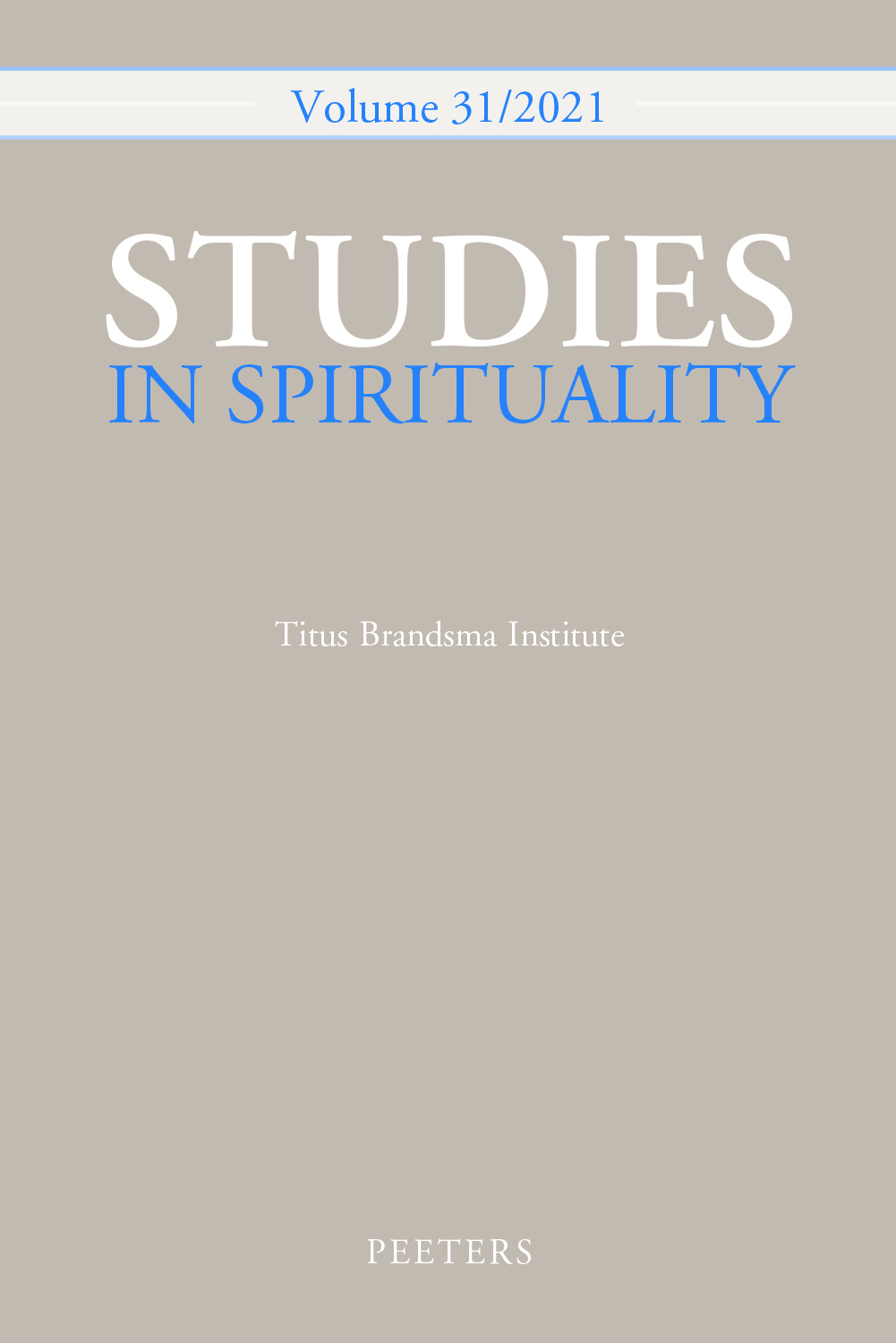 previous article in this issue previous article in this issue | next article in this issue  |

Preview first page |
Document Details : Title: 'Ein Vogel bin ich, den kein Schuss erreicht' Subtitle: Die 'ungeahnte Kraft' von Gerty Spies in Theresienstadt Author(s): VAN DEN BRANDT, Ria Journal: Studies in Spirituality Volume: 18 Date: 2008 Pages: 95-112 DOI: 10.2143/SIS.18.0.2033284 Abstract : During her imprisonment in nazi transit camp Theresienstadt, the German Jewess Gerty Spies (1897-1997) developed a strong and unexpected inner strength (‘ungeahnte Kraft’), which helped her to survive the camp. This article is focussing on the genesis and the different elements of Spies’ psychic and spiritual process. By using literary-historical and psychological concepts as ‘Innere Emigration’, ‘Innerlichkeit’, ‘Flucht nach innen’, ‘Territorium des Selbst’ and ‘Habitus’, I have placed Spies’ writings in a historical context of mental reactions to the nazi regime. Writing poetry and a diary helped Gerty Spies (next to her daily work) to keep her identity and to survive the camp. Her poetry as well as her camp journal and memoirs are notable through their specific spirituality. One could consider her poetic spirituality as the outcome of an ‘Innere Emigration’, characterized by imaginations of God’s and nature’s vicinity, grace, love, detachment, a new found self and a new found inner freedom. Gerty Spies’ language is comparable to, for instance, the spiritual vocabulary of Etty Hillesum. Both Jewish women not only developed a necessary inner world in the then hostile nazi world, but also witnessed about it. The invincibility of the spirit became the quintessence of Spies’ writings. |
|


